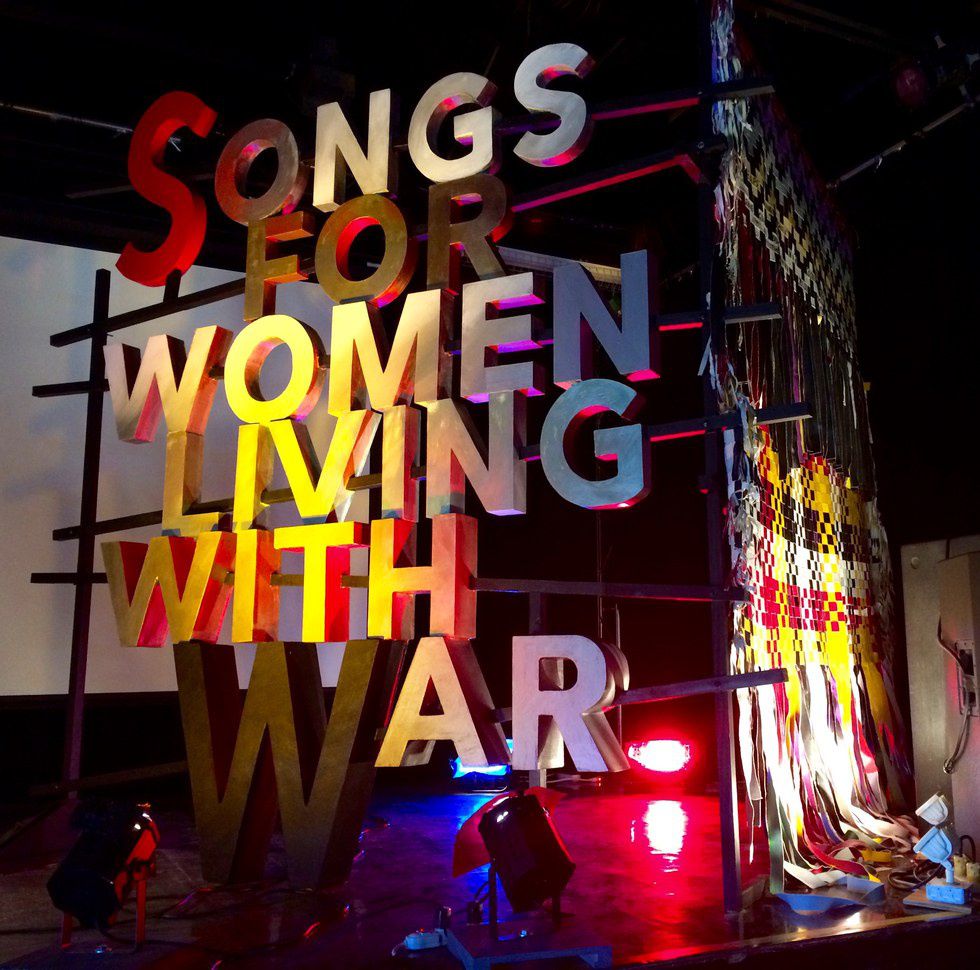"Sexual violence in conflict needs to be treated as the war crime that it is; it can no longer be treated as an unfortunate collateral damage of war."— UN Special Representative on Sexual Violence in Conflict, Ms. Zainab Hawa Bangura
Sexual violence brought upon by war is an epidemic of our culture of war and a crime against humanity. Through the creation of a public art installation, the Painting and Mural class at California State University, Monterey Bay would like to remember the women and children and the violence they suffered.
The theme of the memorial/anti-war monument is "Songs For Women Living With War / Bahay Ni Lola," which means house of grandmothers in Filipino. The mural is a place of healing, empowerment and information. Sexual violence against women and children is nondiscriminant and is an issue that needs attention.
Historically, sexual violence during times of conflict has been used to intimidate cities as well as separate and destroy families and their communities. This kind of behavior has been accepted and unavoidable in the past, but now demands to be treated as a war crime. Due to this behavior, women are left to deal with the physical and psychological effects. The Nature and Psychosocial Consequences of War Rape for Individuals and Communities have found physical effects that can include sexual injuries and torture, sexually transmitted diseases, and unsafe self-induced abortions. Psychological effects can include inability to feel safe or trust, insecurities, PTSD, insomnia, depression, societal and family rejection and suicidal tendencies.
War rape dates back to antiquity with the Greeks and Romans and continues today in parts of Africa and in the Islamic States. In South Sudan, Army-affiliated militias raped and abducted women and used girls essentially as a form of payment, who are being killed if they resist. Ninety-five percent of those cases were of women and children. In the Islamic States, ISIS members rape women and children for religious reasons, stating the Quran encourages sexual violence against unbelievers. The Islamic State has created a sex trafficking empire, which includes sales contracts approved by the ISIS-run Islamic courts.
It is time to put a stop to sexual violence during times of conflict and here is how:
1. Understanding rape as a war tactic.
Sexual violence during conflict is an ancient war tactic, but only recently has it been studied. Some findings include that war rape is not prone to certain areas of the world, or to specific ethnic groups or even gender.
2. Study armed groups.
By studying militia groups, we can understand their ideology, morals and laws, as well as how commanders recruit, discipline and pay soldiers — which can help predict whether a group might rape, and how. Those who are committing these sexual violence acts could then be publicly identified. Doing so would strip credibility and potentially prevent the growth of these organizations and their investors.
3. Enforce rape as a war crime, and increase prosecution.
By enforcing rape as a war crime, prosecutors can hold soldiers and commanders accountable for their crimes and provide the survivors with closure and justice for the violence they have suffered.
4. Get individuals and communities to get involved.
There are campaigns and movements around the world urging for our involvement.
-Take a pledge with The International Campaign to Stop Rape & Gender Violence in Conflict
-Help fundraise and petition with the International Rescue Committee
-Download a letter asking your elected official to increase efforts to address sexual violence in conflict with the Stop Rape Now organization
-Create a public art installation like CSUMB has done to create awareness and provide hope to those in need.






















